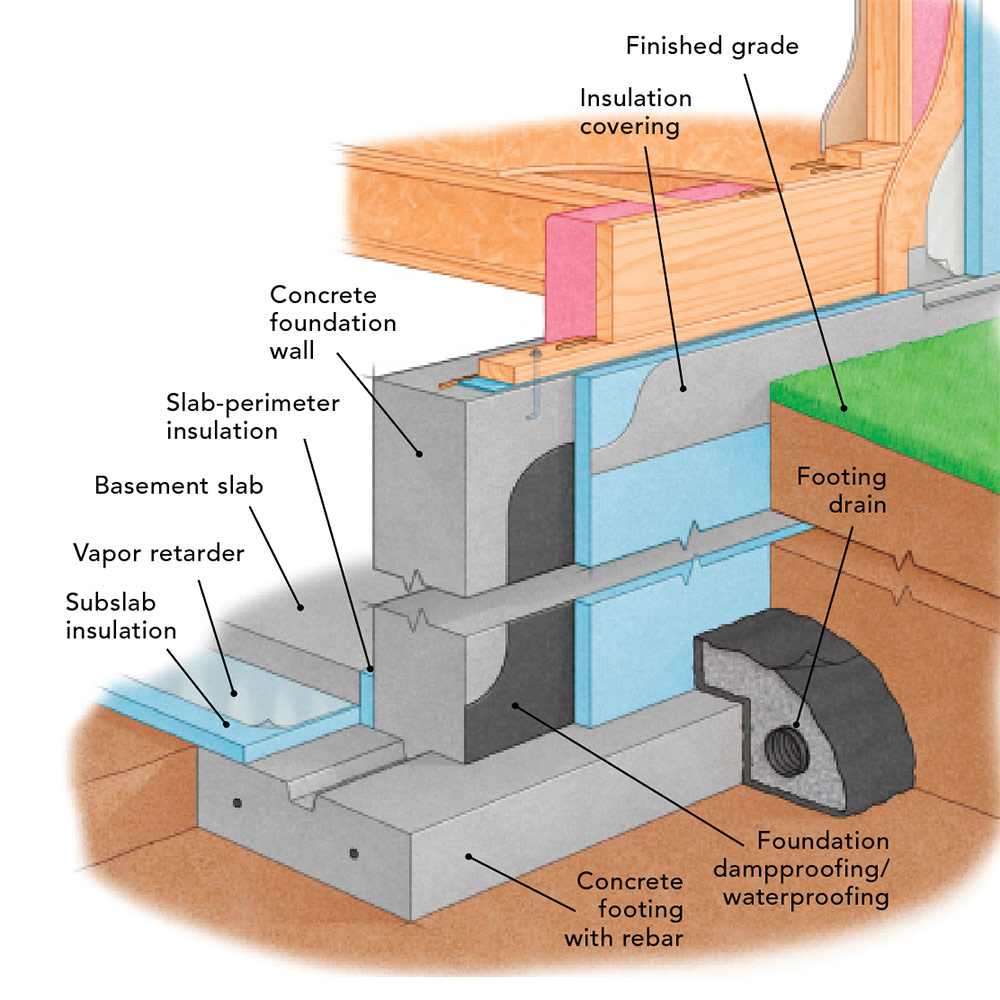Building a deck in Chicago isn’t just about picking your favorite wood and hammering away. The city has stringent regulations that determine what you can and can’t do. Whether you’re planning a small backyard deck or upgrading a front porch, understanding the local building codes ensures a smooth, legal, and safe project. This guide provides a comprehensive breakdown of the building codes in plain English, helping you build smart, safe, and legal decks.
Understanding Chicago’s Deck Building Regulations
Building codes might sound complicated, but they serve as a safety checklist. In Chicago, decks are covered under the Chicago Construction Codes, which ensure that structures can withstand wind, weight, and the harsh local weather. Even if you’re building a deck just a few feet off the ground, you must comply with these codes.
The city reviews several factors:
- The strength of the materials
- How deep the posts go into the ground
- The stability of the railings
- The proximity of the deck to property lines
Quick facts:
- Chicago’s strong winds and heavy snow demand extra sturdy decks.
- Decks over 30 inches high require guardrails.
- Some projects require a full permit, while others might qualify for the Easy Permit Process.
- Failing to follow the code could result in fines, forced repairs, or even having to tear down the deck.
Tip: Always verify the latest Chicago Construction Codes on the city’s website or consult with a licensed contractor before starting your project.
When Is a Building Permit Required for Decks in Chicago?
Before you start hammering away, you’ll need a building permit for most deck projects in Chicago—yes, even for small ones. A permit is necessary if:
- The deck is attached to your house.
- The deck is more than 30 inches high.
- You’re adding new stairs or a landing.
- You’re replacing major structural components, like beams, posts, or joists.
You might not need a full permit if:
- You’re doing minor repairs, such as replacing a few deck boards.
- The deck is completely freestanding and low to the ground.
- Your project qualifies for Chicago’s Easy Permit Process (good for simple repairs or small decks).
Why does Chicago care so much? Deck collapses have happened before, and they can be dangerous. Chicago’s rules are designed to protect you, your guests, and anyone walking nearby.
Skipping the permit? This can lead to:
- Fines exceeding $1,000, especially if safety is at risk.
- Orders to tear the deck down.
- Delays when selling your house.
Tip: Even if your deck seems “small enough,” check with the Chicago Department of Buildings first. It’s cheaper to ask than fix problems later.
Key Structural Requirements for Decks in Chicago
Building a deck in Chicago isn’t just about appearance; it’s about ensuring safety. The city has strict rules regarding the deck’s structural integrity to ensure it can withstand weight, weather, and wear.
Load-Bearing and Structural Integrity
Your deck must support much more than a few chairs and a grill. According to the city’s codes, the deck must be able to support at least 100 pounds per square foot for live loads. This includes people, furniture, snow, and strong winds.
Key points:
- Use pressure-treated lumber or approved metal framing.
- Joists, beams, and posts should be sized according to the deck’s span and expected load.
- Connections must be secure—no shortcuts with nails where bolts are required.
Tip: A structural engineer or licensed contractor can ensure everything is up to code, especially for rooftop decks or multi-level structures.
Footings and Foundations

Given Chicago’s brutal winters, deck footings must be at least 42 inches deep. This ensures the foundation stays below the frost line and doesn’t shift during freeze-thaw cycles.
Basic footing rules:
- Concrete footings must fully support the deck’s load.
- Footings should be placed under every post.
- Post anchors should keep wood from direct contact with the soil to prevent rot.
For larger or heavier decks, the city may require bigger footings to distribute the weight safely.
Tip: Always call 811 before digging to check for underground utilities. Chicago requires this check before you dig.
Railings and Guardrails
Decks more than 30 inches off the ground require guardrails. The city’s regulations for guardrails include:
- Railings must be at least 42 inches high.
- Openings in the railing must be small enough so a 4-inch sphere cannot pass through.
- Stair handrails should be between 34 and 38 inches above the stair tread.
You can use materials like cables, glass panels, or metal balusters as long as they meet spacing and strength requirements.
Tip: For extra safety, especially if you have children or pets, ensure the spacing between balusters is tighter to avoid safety issues and compliance problems.
Design and Material Considerations for Chicago Decks
Choosing the right materials and design for your deck is critical in Chicago’s climate, which experiences freezing winters, wet springs, and humid summers. It’s important to select durable materials that require minimal maintenance while handling Chicago’s tough seasons.
Approved Materials for Deck Construction
Given the weather extremes, Chicago requires materials that can withstand moisture, temperature fluctuations, and heavy loads. Approved options include:
- Pressure-treated wood: Affordable and resistant to rot.
- Cedar or redwood: Naturally resistant to rot and insects but more expensive.
- Composite decking: Low maintenance and long-lasting.
- Metal framing (steel or aluminum): Suitable for rooftop decks or high-load structures.
Fasteners and hardware should be corrosion-resistant. Stainless steel or galvanized steel is ideal for treated wood to avoid rust and premature failures.
Tip: Always check product labels to confirm materials are rated for outdoor structural use in Chicago’s climate.
Deck Design Requirements in Chicago
Design isn’t just about style—it must comply with building codes. Key design regulations include:
- Stairways: Minimum width of 36 inches.
- Risers: Should not exceed 7.75 inches.
- Treads: Must be at least 10 inches deep.
- Landing platforms: Required at the top and bottom of stairways if there’s a door or heavy foot traffic.
Setbacks are another important consideration. In some areas, decks must be set back a specific distance from property lines or alleys. Always check local zoning maps or consult with the Department of Buildings.
Tip: If you plan to add a pergola, roof, or privacy screen, these features may require separate permits or additional inspections.
Common Mistakes to Avoid When Building a Deck in Chicago
Even the best-laid plans can go wrong with small mistakes. In Chicago, following building codes isn’t optional—it’s required. Here are some common mistakes to watch out for:
Skipping the Permit Process
Don’t assume you can “just build it” without a permit. Doing so can result in significant fines and may even require you to tear down the deck.
Always check if you need a permit—even for small repairs or upgrades. The Easy Permit Process can make simpler projects faster and easier to complete.
Using the Wrong Materials
Not all lumber is suitable for outdoor use. Make sure you use pressure-treated wood, cedar, redwood, or approved composite materials. Using improper materials can cause the deck to rot within a year, leading to expensive repairs.
Incorrect Railing Heights and Spacing
If your guardrails are too short or too far apart, they may fail inspection. Ensure the guardrails are at least 42 inches high and that the gaps are small enough to prevent a 4-inch ball from passing through.
Poor Footing Installation
Shallow footings can cause decks to shift, crack, and sag. Digging to at least 42 inches and installing solid concrete footings is essential for stability.
Tip: Cutting corners on footings to save money often results in far higher repair costs.
Permit Application Process for Decks in Chicago
Building a deck might feel like a daunting task, but understanding the permit process makes it much easier.
Step 1: Determine If You Qualify for the Easy Permit Process
For smaller and simpler decks, Chicago offers the Easy Permit Process. It’s available if:
- You’re replacing or repairing an existing deck of the same size and location.
- You’re building a small freestanding deck.
For more complex projects, you’ll need a full standard permit.
Step 2: Gather Documents
Whether you’re applying for a full or easy permit, you’ll need:
- A site plan showing deck placement.
- Structural drawings for the framing, footings, and supports.
- A property survey for boundaries and setbacks.
- Material specifications.
If you’re working with a licensed contractor, they can handle this.
Step 3: Submit Your Application
Submit your application online or in person at the Department of Buildings. Fees depend on your project’s size and value.
Step 4: Schedule Inspections
After your permit is approved, inspections will be required at various stages of construction.
Tip: Be sure to schedule inspections in advance, as city inspectors can get busy, especially during summer months.
Deck Zoning Requirements in Chicago
In addition to building codes, you must also adhere to zoning regulations, which determine where you can build and how big your deck can be.
Setback Requirements
Decks must be a certain distance from property lines, alleys, or streets. Setback rules vary by zoning district, but generally:
- Front yard decks need special approval.
- Side and rear yard decks must be set back a few feet from property lines.
Lot Coverage Limits
Zoning laws limit how much of your lot can be covered by structures, including decks. Residential lots typically allow up to 45% to 50% coverage.
Deck Inspection Requirements and Process
Chicago requires inspections at three key stages:
- Footing Inspection
- Framing Inspection
- Final Inspection
If your deck fails an inspection, you’ll receive a list of issues to address. Once corrected, you can request a re-inspection.
Cost of Building a Deck in Chicago
The cost of building a deck in Chicago depends on several factors, such as size, materials, design complexity, and labor costs. On average, it ranges from $3,000 to $15,000. Labor costs are typically between $50 to $75 per hour, and material costs vary.
FAQs on Deck Building Codes in Chicago

- Do I need a permit? Yes, most deck projects require a permit.
- How close can my deck be to the property line? It depends on your zoning district.
- Can I build a deck without a professional? It’s recommended to hire a professional for compliance with building codes.
- What happens if my deck doesn’t pass inspection? You’ll receive a list of issues to fix and can request a re-inspection.
How long does it take to get a deck permit? It typically takes 2-4 weeks for a standard permit.






